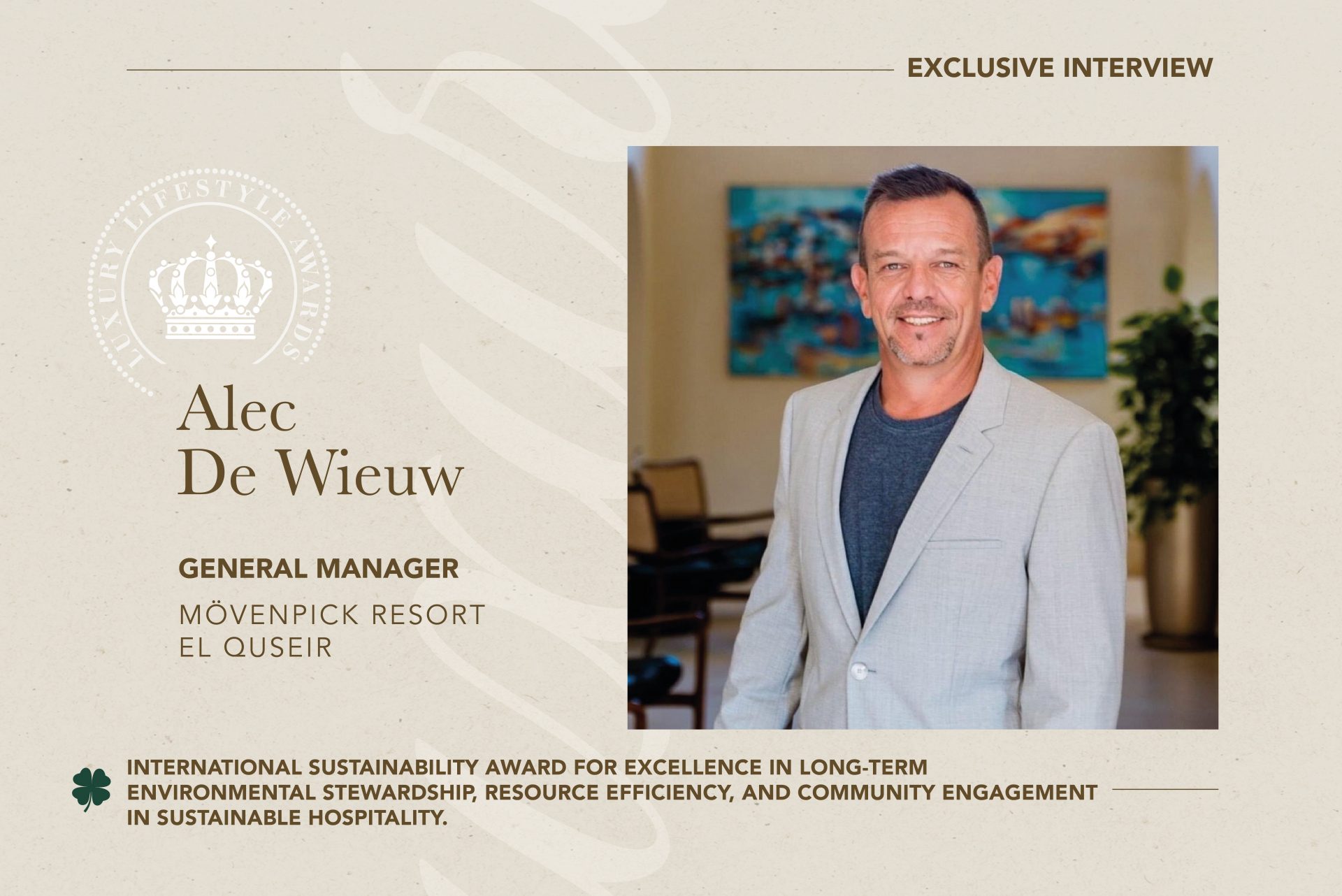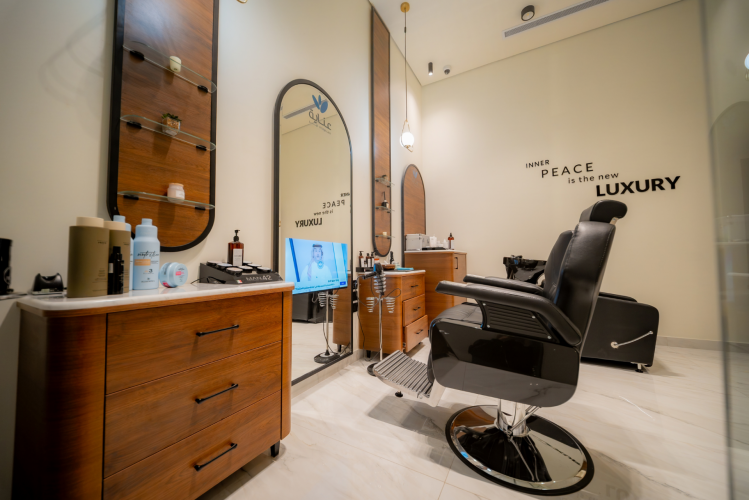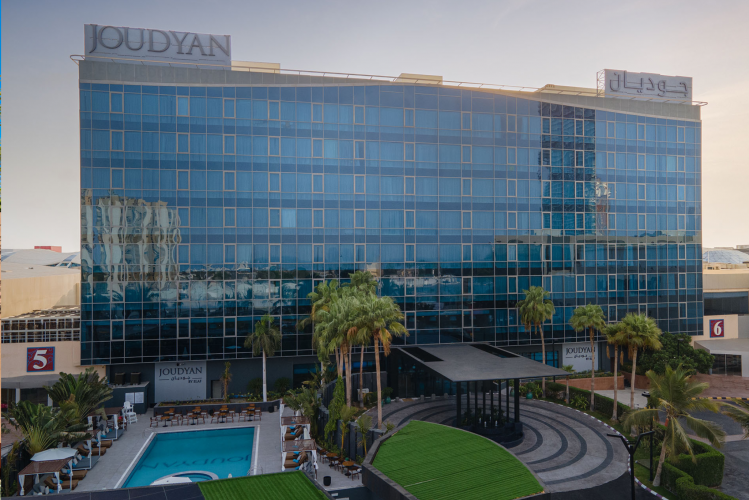Tucked along the unspoiled coastline of Egypt’s Red Sea, Mövenpick Resort El Quseir personifies sustainable premium hospitality. Awarded the 2025 International Sustainability Awards, the resort has consistently demonstrated that environmental integrity and world-class guest experiences are not mutually exclusive but mutually reinforcing. Central to this achievement is Alec De Wieuw, General Manager and seasoned hospitality leader, whose strategic vision has elevated the resort’s sustainability agenda while maintaining operational excellence and guest satisfaction at the highest level.
With more than three decades of experience, Alec is widely respected for his ability to integrate environmental and social responsibility into the core operations of a premium resort. Under his stewardship, Mövenpick El Quseir has achieved Green Globe Platinum certification for ten consecutive years, pioneered comprehensive waste and resource management systems, and established deep-rooted partnerships with the local community. From Geb’s Garden, the resort’s organic farm, to marine conservation initiatives led in collaboration with marine biologists and dive experts, Alec’s leadership is emblematic of the future of ethical and impactful hospitality.
Alexander Chetchikov, President of the World Luxury Chamber of Commerce, leads our exclusive interview. Drawing on more than 17 years of experience recognizing the globe’s most distinguished luxury brands through the Luxury Lifestyle Awards, he offers rich expertise and discerning insight into the dynamic landscape of luxury.
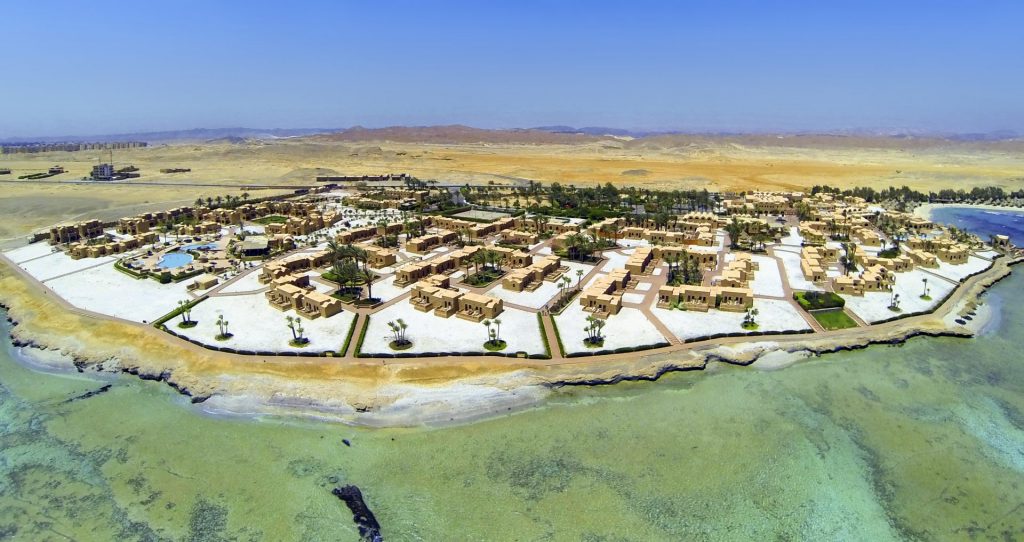
Questions:
Alexander Chetchikov: First of all, congratulations on Mövenpick Resort El Quseir being awarded the 2025 International Sustainability Award. How does it feel to receive such a prestigious accolade, and what does it mean to you personally as General Manager?
Alec De Wieuw: Thank you, Alexander. It’s a tremendous honor and a proud moment for all of us. This award is a reflection of our team’s deep commitment to responsible hospitality. Personally, it reinforces my belief that sustainability isn’t just a goal—it’s a shared responsibility and a daily practice. To see our efforts recognized on an international level is both humbling and motivating.
AC: Geb’s Garden has become a signature initiative within the resort. Could you elaborate on the operational model behind the farm and its integration into your culinary philosophy and supply chain?
ADW: Geb’s Garden is more than just an organic farm—it’s the centerpiece of our sustainability efforts and is designed for guests to engage with, not just observe. It supplies fresh produce to our kitchens, supported by our on-site composting machine that recycles organic waste back into the soil. We also showcase goats, chickens, and beehives from local farmers we source from, adding transparency and charm. Soon, our new crafts center will invite guests to explore local pottery and macrame, blending sustainability with culture in a truly immersive way.
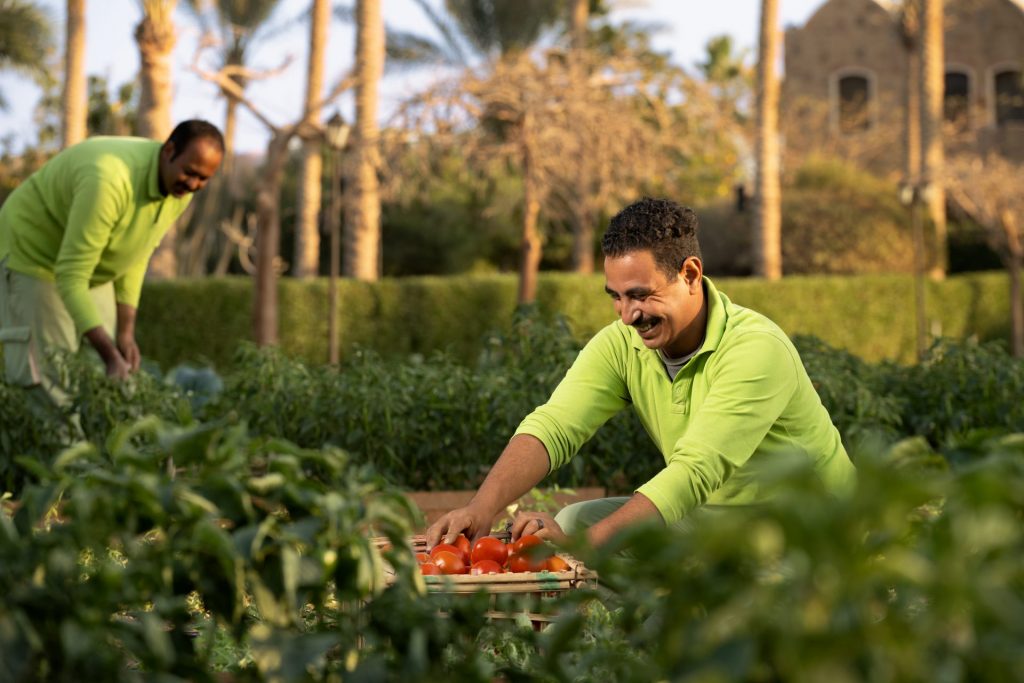
AC: Marine biodiversity is central to the resort’s identity. How does your collaboration with EXTRA DIVERS WORLDWIDE and the in-house marine biologist shape both conservation outcomes and guest programming?
ADW: Marine biodiversity is at the heart of our identity, and our collaboration with EXTRA DIVERS WORLDWIDE—including their resident marine biologist—is a cornerstone of our efforts. While coral conservation permits in Egypt are rare, we’re proud to operate a limited coral nursery, contributing meaningfully within regulated boundaries. Our primary focus, however, is guest engagement—through guided dives, educational sessions, and reef etiquette programs, we empower guests to understand the do’s and don’ts of responsible snorkeling and diving, deepen their knowledge, and become active supporters of a thriving marine ecosystem.
AC: Over 90% of your team is recruited locally. How does this influence the resort’s service ethos, and what investments have you made in local talent development and retention?
ADW: Prioritized local hiring is non-negotiable for us—we support our community first, with over 90% of our team coming from the surrounding area. This shapes a service ethos grounded in authenticity, pride, and cultural connection. Our strongest investment is in training and development, which drives loyalty and retention—more than half of our team has been with us for over ten years. This long-term team stability has, in turn, fostered deep guest loyalty, with many guests forming lasting bonds with our staff. In some cases, we’re now welcoming second—and even third—generations of both team members and returning guests.
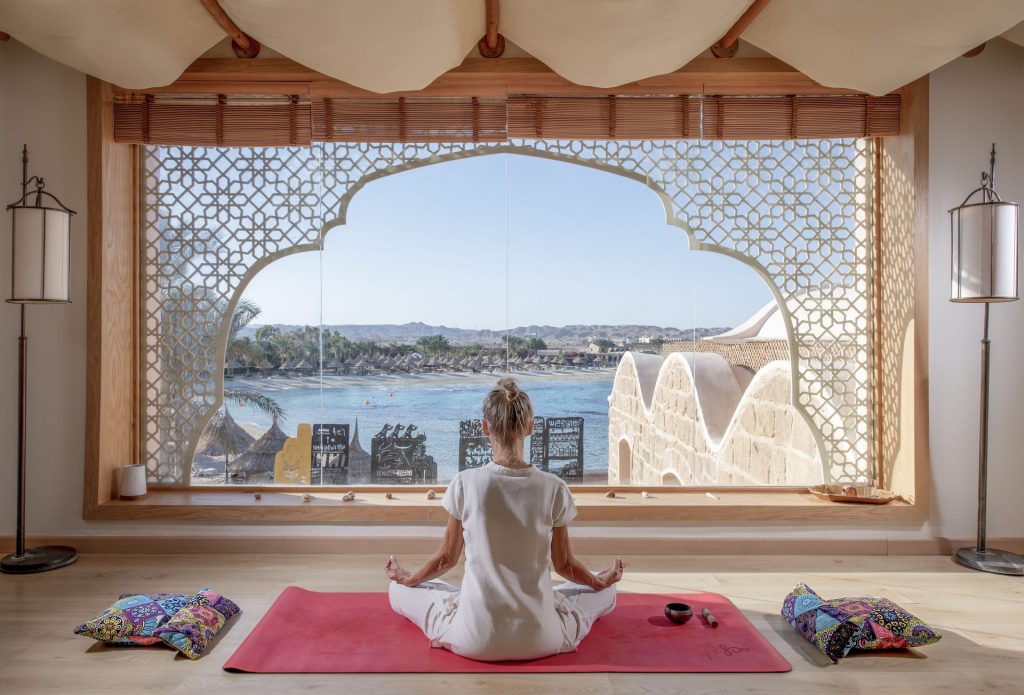
AC: Sustainability reporting is often abstract. How does Mövenpick El Quseir translate environmental KPIs—such as carbon emissions or water usage—into actionable insights for your teams?
ADW: We translate environmental KPIs—like carbon emissions, water usage, zero-plastic progress, food waste, and others—into clear, practical actions for our teams. This extensive data requires a focused Sustainability Manager to lead reporting, action planning, and corrective measures. We connect these metrics to daily routines and department goals, supported by training and visual dashboards, so everyone understands their impact. We also engage our guests by sharing results and how they can contribute. By the end of this year, guests will see the CO₂ emissions for every dish on the menu—empowering them to make informed choices and helping us continuously improve.
AC: Reflecting on your career, how has your sustainability philosophy evolved, and how have global environmental trends informed your leadership at Mövenpick El Quseir?
ADW: Early in my career, sustainability was often viewed simply as a compliance or cost-saving measure. Over time, however, I’ve come to recognize it as a true leadership imperative. Global challenges—from climate change to evolving consumer expectations—have pushed me to adapt and innovate continuously. At El Quseir, this means embedding sustainability into our very DNA—not just through policies, but by fostering a purpose-driven culture, engaging our guests, and maintaining transparent accountability.
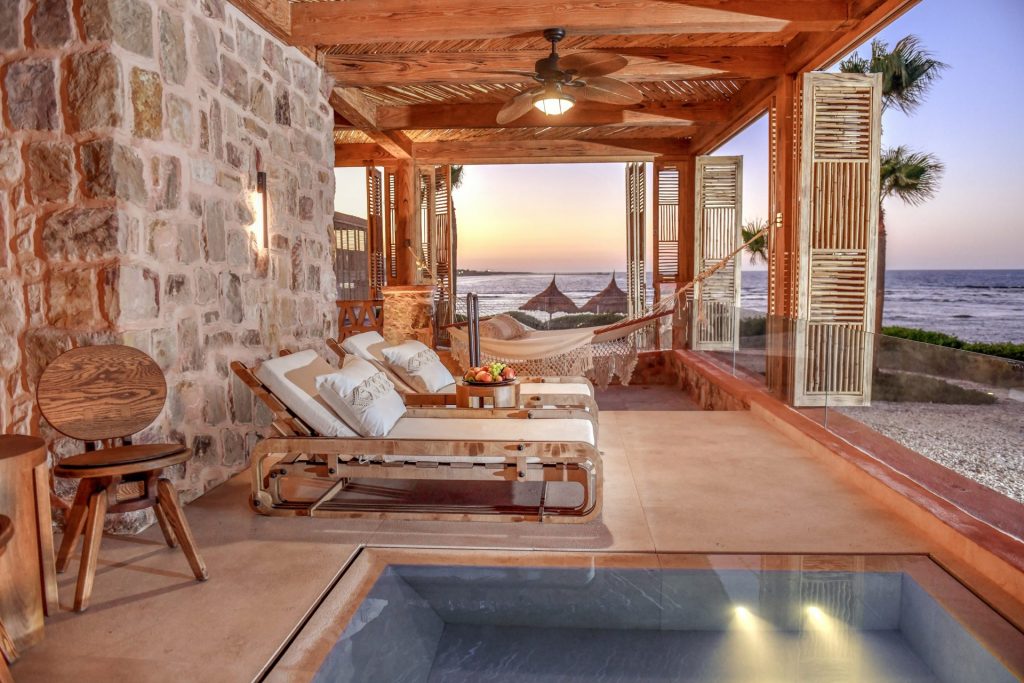
AC: The hospitality sector often faces structural challenges in achieving genuine sustainability. From your perspective, where are the most significant systemic gaps, and how can they be addressed?
ADW: One of the biggest gaps is the disconnect between long-term sustainability goals and short-term commercial pressures. We need more alignment between operators, investors, and regulators. Incentivizing sustainability through favorable financing or tax benefits and fostering collaborative standards across the industry can accelerate progress.
AC: Looking ahead to 2030, what innovations—technological, regulatory, or behavioral—do you believe will most fundamentally reshape sustainability in tourism and hospitality?
ADW: I believe tech-enabled energy management, circular resource models, and greater transparency in supply chains will be transformative. But the biggest shift will be behavioral: empowering travelers to make choices based on impact, and training teams to deliver on those expectations. The resorts that thrive will be those that align values with action at every touchpoint.
Thank you, Mr. De Wieuw, for your thoughtful insights and for demonstrating how leadership can transform sustainability from a policy into a living, breathing culture of merit.
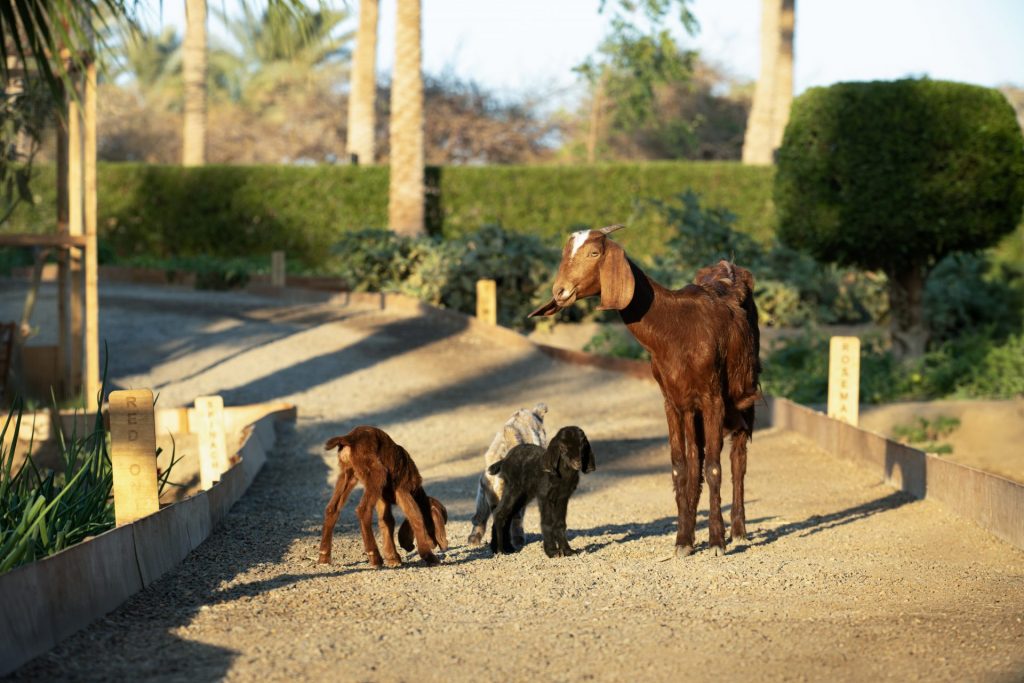
Visit https://movenpick.accor.com/en/africa/egypt/el-quseir/resort-el-quseir.html to book your stay at the award-winning hotel today.



